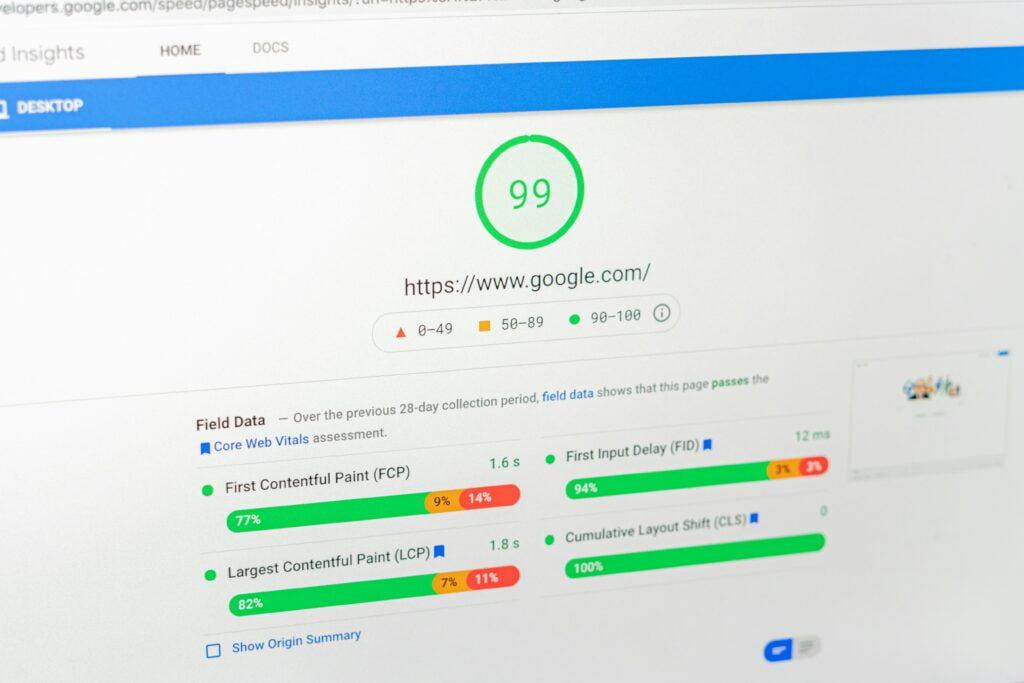Exploring AI’s Role in Transforming eCommerce: A Weekly Insight
Welcome aboard eCommerce aficionados! As we tune into another insightful episode of The Checkout Point by Blikket.co, it’s time to take a closer look at how artificial intelligence is rewriting the rules of our online shopping experiences. With the rapid evolution of eCommerce, staying updated with the latest technologies isn’t just beneficial; it’s crucial. This week, we delve deep into the burgeoning influence of AI in eCommerce, shining a spotlight on how these technologies are not merely modifying but revolutionizing the way we browse, shop, and engage online.

Unveiling AI: More Than Just Algorithms
Imagine a digital shopping assistant that knows your preferences better than you do yourself, or a smart system that optimizes your site’s visibility without human intervention. These aren’t scenes from a sci-fi saga but real-life scenarios made possible by AI in eCommerce. Today, we’re unpacking the layers of Adaptive Programmatic SEO and content strategies honed by AI, designed to make your online marketplace as intuitive and user-friendly as possible.
Retail’s New Frontier: Innovation Meets Sustainability
It’s not just about technology’s role in enhancing online stores; major retail players are setting stages for a sustainable revolution. As eCommerce giants like Walmart and Ikea dip their toes into selling pre-owned goods, we see a shift towards sustainability that could redefine consumer habits and expectations.
Disruptive Technologies and Digital Evolution
Amidst exploring these transformative technologies, we’re also keeping an eye on how emerging tech resolves—or sometimes creates—snags during high-profile digital sales events. Join us as we bridge the gap between digital convenience and physical retail with a glimpse into the high-tech synergy of Amazon’s grocery stores.
As AI continues to carve new paths in eCommerce, stay tuned to uncover what’s driving these advancements and how they can benefit your digital strategy. Whether you’re refining your marketing approach or architecting an online empire, understanding AI’s role in eCommerce is a game-changer. Let’s embark on this journey together and decode the mysteries AI brings to the digital marketplace in this week’s episode of The Checkout Point.
Imagine a future where shopping journeys are uniquely tailored to each visitor, where websites know your preferences better than you do. This isn’t a scene from a sci-fi movie; it’s the reality that AI technologies are revolutionizing eCommerce today. By harnessing the power of AI-driven programmatic SEO, eCommerce platforms are not just participating in the market—they are shaping it to offer the most personalized shopping experience ever.
The Power of AI-Driven Programmatic SEO
For starters, the integration of AI in programmatic SEO is transforming the digital storefronts as we know them. Through automated analyses of trends and user behaviors, these systems are now capable of preemptively making adjustments to a site’s content and structure, thereby maximizing their visibility and relevance in search results. Think of it as a digital concierge that rearranges products to catch the eye of browsers most likely to convert into buyers.

Speed and Quality with AVIF Images
As visual appeal and page load times become increasingly critical factors in user satisfaction and SEO, the adoption of AVIF image format comes as a breath of fresh air. Supported by Google, these lightweight yet high-quality images ensure that websites are not only appealing but are also swift. This directly enhances user experience, keeping potential customers engaged and not waiting.

The Debate Over AI-Created Content
But it’s not all cutting-edge technology without controversy. The surge in AI-generated content has sparked a significant debate. As much as businesses benefit from the efficiency and scalability that AI provides in content creation, concerns loom over losing the unique human touch. After all, how does one feel confident in a product if a machine, not a person, recommends it? As voices get louder, the discussion is centering on finding the right balance between automation and authenticity.

Personalized SEO Guidance from Gemini Gems
Google’s introduction of Gemini Gems AI experts is perhaps a nod towards a more tailored approach in optimization. These AI-driven advisors offer bespoke SEO suggestions, derived from analyzing vast amounts of data—something that would be incredibly challenging and time-consuming for human SEO consultants to achieve. This feature stands as a testament to AI’s potential to not just supplement but enhance strategic SEO planning.

Technological Hardware Shifts in eCommerce
Last but not least, even the technological hardware integral to eCommerce platforms is undergoing a shift. Apple’s potential move to eliminate USB-A ports in favor of more advanced options in their devices, as reported by The Verge, signals a shift towards modernizing the infrastructural backbone of digital commerce platforms to keep up with the advancing pace of technology.
In essence, the blend of AI technologies with eCommerce is not just refining operational efficiencies and user experiences but is shaping a new era where technology meets personalized consumer interaction. This evolution holds limitless possibilities for innovation in how we explore, engage with, and enjoy shopping in the digital age. So, the next time you find your page loading quicker, or your search results oddly accurate, remember—a spectrum of AI capabilities is diligently working behind the screens.

Revolutionizing Retail: The Rise of Resale and Marketplace Platforms
Ah, the dynamic world of retail never ceases to amaze! In today’s conversation, we delve deeper into a burgeoning trend that’s molding not just our shopping habits but also our consumption ethos. Retail giants like Walmart and Ikea are spearheading a movement towards marketplace and resale platforms, suggesting a significant evolution in how we perceive ownership and sustainable shopping.
The Strategic Shift at Walmart
Take Walmart, for example, long recognized for its vast array of brand-new items, now embarking on a journey toward accepting pre-owned goods. In a recent groundbreaking announcement at their Let’s Grow Summit, Walmart revealed an invitation to sellers globally to list pre-owned products on its marketplace. This isn’t merely about selling used goods; it signifies a much larger leap toward a sustainable retail ethos, championing product lifecycle extension and waste reduction.
This industry pivot isn’t solely driven by eco-consciousness; it’s aligned with changing consumer behaviors. Today’s shoppers express a keen interest in reducing environmental impacts. They’re also seeing economic advantages in buying pre-owned. Walmart is capitalizing on these trends, not just adapting its offerings but also enhancing its marketplace with added logistics support to simplify the process for sellers, thereby fostering a more robust resale environment.
Ikea’s Innovative Resale Endeavors
Shifting focus to Ikea, a brand synonymous with modern, do-it-yourself furniture, we notice a parallel shift towards sustainability. The Swedish giant is currently testing a new initiative, a resale marketplace where customers can purchase pre-owned furniture directly through Ikea. This pilot program, as detailed in Digital Commerce 360, enables customers to give their old furnishings a second life, thereby fostering a community-centered approach to consumption.
Expanding Beyond the Usual
Moreover, Walmart’s initiative is not confined to mere resale. It’s about creating an expansive ecosystem encompassing a wider range of categories including premium beauty products and collectibles. As noted by Retail Dive, Walmart is transforming its marketplace into a diverse treasure trove, addressing the unique needs and desires of its vast customer base.
In essence, the advancement of marketplace and resale platforms by these retail titans reflects a significant shift in societal values towards sustainability and conscious consumerism. These platforms are no longer just transactional venues; they are evolving into communities where each product carries a backstory, promoting a lesser environmental impact with every purchase.
So, before you decide to buy that brand-new item, why not browse these innovative resale platforms? You might stumble upon a unique find, save some money, and contribute positively to the planet. Welcome to the future of smart, sustainable shopping!
AI Technologies Revolutionizing eCommerce: The Unseen Forces Behind Your Online Shopping Cart
Anyone who’s ever felt the thrill of snagging a discount during a big sale can appreciate the magic of online shopping – until it grinds to a halt at the checkout. It can be exasperating, like during the recent Labor Day sale hiccup on Amazon, where a technical snag interrupted numerous shopping sprees. This isn’t just an isolated event; it’s a showcase of the persistent effort to push the online retail experience to its optimal state, even when technology trips up.

The Evolution of SEO in eCommerce
Simultaneously, we’re witnessing key shifts in how online visibility is engineered. Google’s recent SEO clarification rocked the boat for digital marketers everywhere by revealing that outbound links don’t boost site rankings as previously thought. This develops reminds us just how dynamic the landscape of digital marketing strategies can be, constantly adapting to new rules and algorithms introduced by giants like Google.
High-Tech Grocery Shopping: Amazon’s Latest Venture
Amidst these online adjustments, Amazon has been busy offline too, opening four innovative high-tech grocery stores. This isn’t just an expansion of their physical footprint; it’s a redefinition of grocery shopping itself. Picture walking into a store where smart carts calculate your total, guide you through aisles efficiently, and even make product recommendations based on past purchases. Throw in AI-enabled inventory management, and this shopping experience isn’t just faster; it’s smarter, tailored to maximize both efficiency and satisfaction.
Interconnected Technologies: Shaping Future eCommerce Trends
The interaction between these online and offline advancements forms a feedback loop that fuels further innovation. Every technical snag serves as a lesson for refining digital processes, while insights gained from digital interactions enrich the physical shopping experience. This symbiotic relationship between physical stores and online platforms is sculpting a new commercial epoch that champions rapid service delivery, process efficiency, and elevated customer satisfaction.
Next time you ‘Add to Cart’, take a moment to consider the intricate tapestry of technologies and strategies diligently working to enhance your shopping experience. From a misstep in checkout to the strategic placement of grocery items, each detail is part of a broader narrative. It’s a complex connection of initiatives, both seen and unseen, that continuously evolve to craft not just a shopping transaction, but an enriched, tech-driven shopping experience.
Indeed, eCommerce isn’t just growing; it’s undergoing a revolution. The key driver? AI technologies that turn basic interactions into seamless, engaging experiences. As businesses adapt and innovate, they’re not just selling products—they’re creating entire ecosystems that revolve around fulfilling our expectations as consumers.
Thus, the next time a technical glitch tries to dampen your shopping spree, remember: it’s simply a precursor to improvement, an opportunity to transform frustration into a faster, smoother tomorrow in eCommerce.
AI Technologies: A Double-Edged Sword in eCommerce and Beyond
As technology evolves at a breakneck pace, the recent actions in the legislative corridors of California and the heated battlefields of corporate America offer a glimpse into the intricate dance between innovation and regulation. At the heart of these discussions lies a pivotal element shaping the future of eCommerce and online interactions: artificial intelligence (AI).
The Tale of Restraint and Innovation
In an era where AI’s potential seems limitless, California has become a battleground with its latest legislative offering – AI Bill SB 1047. This bill, although created with the intention of harnessing AI ethically, stirs debate concerning innovation suppression. Proponents of the bill argue its necessity in establishing guardrails for the responsible evolution of AI technologies, which are becoming increasingly integral in various sectors including eCommerce. Critics, however, fear it could throttle the growth of California’s tech industry, potentially slowing down the state’s ability to innovate in AI-driven services and products.
AI and eCommerce Integration: A Critical Look
AI’s integration into eCommerce is transforming the landscape, from personalized shopping experiences to optimized inventory management. Yet, as with any technological advancement, it comes with its fair share of concerns and criticisms. The debate over AI regulation reflects a broader concern about how these technologies are developed and controlled. Are they fostering fair competition, or are they inadvertently creating monopolies?
This question moves us to another high-stakes scenario – the recent legal action initiated by Yelp against Google. In their lawsuit, Yelp accuses Google of manipulating search results to favor its services, as scrutinized in multiple sources including “Yelp Sues Google Over Self-Preferencing Reviews” and “Yelp Sues Google Over Local Search Dominance”. Should this be true, such practices could undermine fair business environments, a principle also essential in the realm of AI applications in eCommerce.
The Broader Implications of AI Regulations and Disputes
The intersection of technology laws, corporate battles, and AI integration in business practices such as eCommerce is more than just an isolated scenario; it’s a narrative about future-proofing our society and our economic paradigms. It represents a need for balance—where innovation is nurtured but also meticulously guided to ensure it serves the greater good without stifling creativity.
As we continue to harness AI’s capabilities in eCommerce, it’s crucial to remember that every legislative decision, every corporate confrontation has layers of impact. Decisions made today will dictate not just the current technologies but how they evolve to shape our tomorrow. In this complex tapestry, roles of entities like Google, Yelp, and various stakeholders become critical in defining the trajectory of AI applications in eCommerce and beyond.
Conclusion
The ongoing debates and legal challenges reflect a larger picture of what’s at stake in the digital age: innovation, ethics, corporate responsibility, and government oversight. Understanding and watching these developments will provide valuable insights to eCommerce professionals, who must navigate these waters wisely to leverage AI technologies effectively and responsibly in the competitive marketplace.
The Brave New World of eCommerce: Navigating SEO, Privacy, and Social Media Changes
Welcome back to our deep dive into the dynamic world of digital marketing and customer engagement! In today’s landscape, understanding nuance is more than an advantage—it’s a necessity. From the varied nuances of SEO to the critical aspects of user privacy and shifting social media platforms, marketers today need to navigate through these complex waters with both skill and strategy.

Mastering SEO with Long-tail Keywords
Starting with the backbone of digital visibility—SEO—we find the arena of long-tail keywords intriguing yet pivotal. Unlike the broad spectrum covered by shorter, more common keywords, long-tail keywords allow for precision. They act much like a focused fishing line in a vast ocean of general searches, helping connect your content with the right audience. By harnessing these specific, less competitive phrases, businesses can attract visitors who are actively searching for exactly what they offer, significantly boosting the chances of engagement. Understanding how to navigate these waters can make the difference between a visitor who bounces and one who stays.
Expanding Beyond Traditional SEO
But how does one uncover these lucrative long-tail phrases? It’s not just about spying on competitors; creativity in SEO research is king. Exploring related search queries, analyzing social media trends, or interacting directly with your audience can reveal real-time insights into what potential customers seek. Delving into alternative methods of SEO research not only broadens your understanding but also fuels your content strategy with fresh, relevant ideas.
Building Trust Through Enhanced Privacy Measures
Moving onto privacy—Google’s increasing focus on user consent is reshaping how marketers collect and handle data. Stricter privacy measures mean that trust becomes a central element of customer engagement. Users assured of the security of their personal details are more likely to engage deeply, building a foundation of trust that is crucial for lasting customer relationships.
Adapting to Social Media’s Evolving Landscape
Lastly, let’s discuss the role of platforms like TikTok in digital marketing strategies. A potential ban could devastate many marketing strategies reliant on its massive user base. Such shifts highlight the necessity for flexibility in digital marketing strategies—anticipating changes and adapting swiftly is crucial. Businesses must continually seek innovative ways to engage audiences, as seen in the impacts of a TikTok ban on retailers.
In conclusion, whether it’s through refining SEO strategies, prioritizing user privacy, or adjusting to changes in social media, understanding and connecting with customers remains at the heart of digital marketing. Each adjustment or enhancement in strategy not only offers the opportunity for growth but also helps in building genuine, lasting connections with your audience. Remain inquisitive, keep learning, and most importantly, continue to engage meaningfully with your customers—they are not just data points but potential lifelong advocates for your brand.
Wrapping Up the AI-Driven ECommerce Transformation
As we’ve explored throughout this article, AI technologies are not just a part of the future; they are actively reshaping the present landscape of eCommerce. The intuitive shopping experiences, integration of pre-owned products in mainstream retail, the blending of digital perks with physical shopping, and the legal conversations around technology – all of these elements contribute to what can best be described as a revolution in eCommerce.
The Convergence of AI & Consumer Experience
Imagine a scenario where AI not only knows what you want to buy but predicts your needs before you even articulate them. This isn’t science fiction; it’s the trajectory we’re currently on. With each advancement in AI technologies, the line between online convenience and personalized shopping experiences becomes increasingly blurred. Retail giants are just beginning to scratch the surface of possibilities with AI-driven customer insights leading to more sustainable, consumer-conscious business models.
Legislation: Navigating the Waves of Change
As seen with Yelp’s lawsuit against Google and debates around California’s AI Bill SB 1047, the legal landscape is as much a part of eCommerce evolution as the technology itself. How businesses adapt and respond to these legislative changes is crucial in determining their future trajectory in a tech-centric marketplace.
Interactive Questions for Thoughtful Engagement
As stakeholders in this evolving market, pondering over the impact and future potential of AI in eCommerce is essential. How do you see AI technologies further revolutionizing your shopping experience? Are there ethical considerations that we, as consumers and business owners, should be more vocally addressing? How could emerging legislation affect the adoption of new technologies in your business strategy?
Your insights and predictions are valuable as we navigate these exciting yet challenging waters. Engage with us in the comment section below or share your thoughts on social media. Let’s keep the conversation going. How prepared do you feel in adapting these AI advancements into your eCommerce strategy?
Remember, the wave of AI technology isn’t coming; it’s already here, revolutionizing eCommerce every day. How will you ride the wave to ensure your business not only survives but thrives in this digital transformation?
Keep exploring, keep innovating, and see you in the digital aisles!










